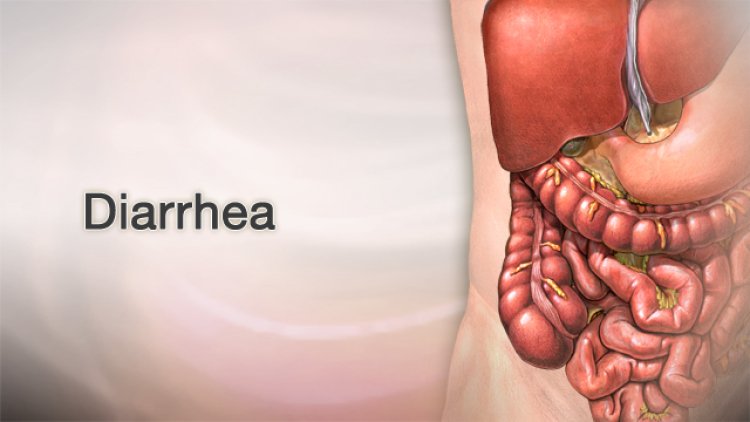How to Control Diarrhea?

Diarrhea can disrupt your daily life, causing discomfort and dehydration. Consulting the best gastroenterologists in Delhi is crucial for managing persistent or severe diarrhea, as they can help determine the underlying cause and recommend an appropriate treatment plan. Diarrhea may result from infections, food intolerances, or chronic conditions like Irritable Bowel Syndrome (IBS). Understanding the triggers and knowing how to control symptoms with home remedies, dietary changes, and medications can aid in quick recovery and improve overall well-being.
Understanding Diarrhea
Diarrhea is characterized by loose, watery stools and frequent bowel movements. Acute diarrhea typically lasts a few days and is often caused by infections or food poisoning. Chronic diarrhea, on the other hand, lasts for weeks and may indicate an underlying health condition such as IBS, Crohn's disease, or a parasitic infection.
Causes of Diarrhea
-
Infections: Viral infections like norovirus or rotavirus, bacterial infections such as E. coli or Salmonella, and parasitic infections can all lead to diarrhea.
-
Food Intolerances: Lactose intolerance, gluten sensitivity, and certain artificial sweeteners can cause digestive distress, including diarrhea.
-
Medications: Antibiotics and certain other medications can disturb the gut's natural flora, leading to diarrhea.
-
Chronic Digestive Disorders: Conditions such as IBS, Crohn's disease, and ulcerative colitis often cause chronic diarrhea.
Key Strategies for Controlling Diarrhea
1. Stay Hydrated
- Why It's Important: Diarrhea can lead to significant fluid loss, increasing the risk of dehydration. Replenishing lost fluids is critical to maintain electrolyte balance and overall health.
- What to Do: Drink plenty of water, herbal teas, or oral rehydration solutions (ORS). Avoid caffeinated and sugary drinks, as they can worsen dehydration.
2. Follow a BRAT Diet
- What It Is: The BRAT diet consists of Bananas, Rice, Applesauce, and Toast. These foods are bland, low in fiber, and easy on the stomach.
- How It Helps: This diet helps firm up stools and reduces irritation in the digestive tract. It provides a temporary solution until your symptoms improve.
3. Incorporate Probiotics
- What They Are: Probiotics are live bacteria and yeast that promote a healthy gut flora.
- How They Work: Probiotics can help restore the balance of good bacteria in your intestines, particularly after taking antibiotics.
- Examples: Yogurt, kefir, and probiotic supplements can aid in managing diarrhea by enhancing gut health.
4. Avoid Trigger Foods
- What to Avoid: Dairy products, fatty foods, spicy foods, and artificial sweeteners like sorbitol and mannitol.
- Why: These foods can aggravate the digestive system, worsen diarrhea, and prolong recovery.
5. Use Over-the-Counter Medications
- Examples: Loperamide (Imodium) and bismuth subsalicylate (Pepto-Bismol).
- How They Help: These medications reduce the frequency of bowel movements and relieve symptoms. However, they should only be used for non-infectious diarrhea and under the guidance of a healthcare professional.
6. Monitor Your Symptoms
- Why: Keeping track of your symptoms, such as stool frequency, consistency, and any associated symptoms like abdominal pain or fever, can help identify patterns and triggers.
- When to Seek Help: If diarrhea persists for more than two days, or if you experience severe symptoms like blood in stools, high fever, or dehydration, consult a gastroenterologist in Delhi immediately.
Natural Remedies for Managing Diarrhea
-
Ginger Tea: Ginger has anti-inflammatory properties that can help soothe the digestive tract.
-
Chamomile Tea: Known for its calming effects, chamomile can reduce intestinal inflammation and discomfort.
-
Apple Cider Vinegar: Contains pectin, which can add bulk to stools and promote healthy gut flora. Mix one tablespoon of apple cider vinegar with a glass of water and drink before meals.
-
Psyllium Husk: A natural fiber supplement that can absorb excess water in the intestines, helping to bulk up stools.
Preventing Diarrhea
-
Practice Good Hygiene: Washing hands frequently with soap and water can prevent the spread of infections that cause diarrhea.
-
Cook Food Properly: Ensure that food is cooked thoroughly and stored at the correct temperature to avoid foodborne illnesses.
-
Stay Hydrated: Drink safe, clean water. Avoid drinking untreated water from lakes, rivers, or even certain taps in places where the water quality is questionable.
-
Avoid Raw Foods: Be cautious with raw or undercooked foods, especially in countries where food safety standards may be different from what you're accustomed to.
When to See a Gastroenterologist in Delhi
If your diarrhea is persistent, severe, or accompanied by alarming symptoms such as severe abdominal pain, high fever, or blood in the stool, it is essential to consult the top gastroenterologist in Delhi. They can conduct the necessary tests, such as stool analysis, blood tests, or even endoscopy, to determine the root cause and provide an effective treatment plan.
Conclusion
While diarrhea is often a temporary condition that resolves with proper care and rest, it is important to know when it requires medical attention. Following these strategies, staying hydrated, and consulting with the best gastroenterologist in Delhi can help manage and control diarrhea effectively. Understanding the triggers and symptoms is key to ensuring a quick recovery and preventing future occurrences.















